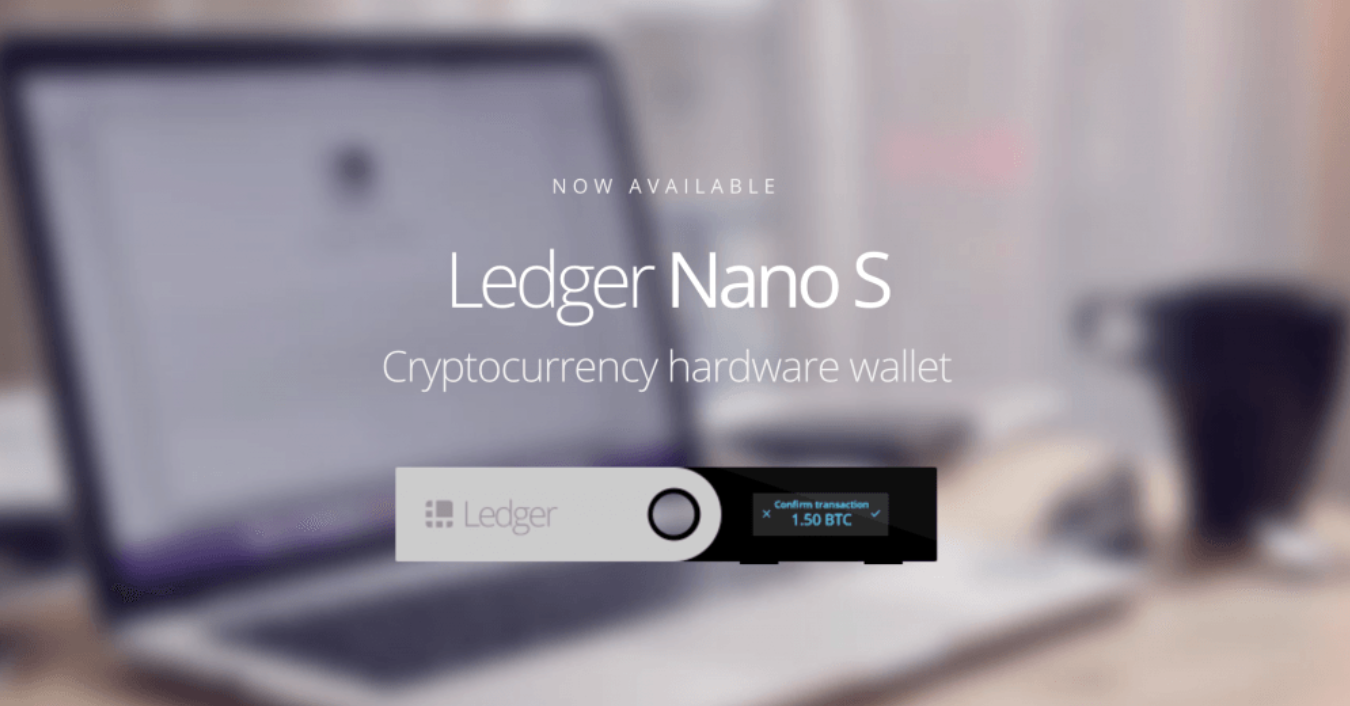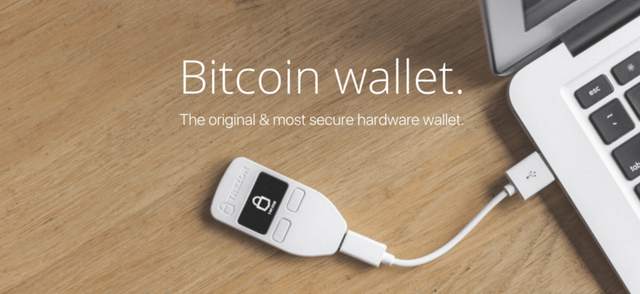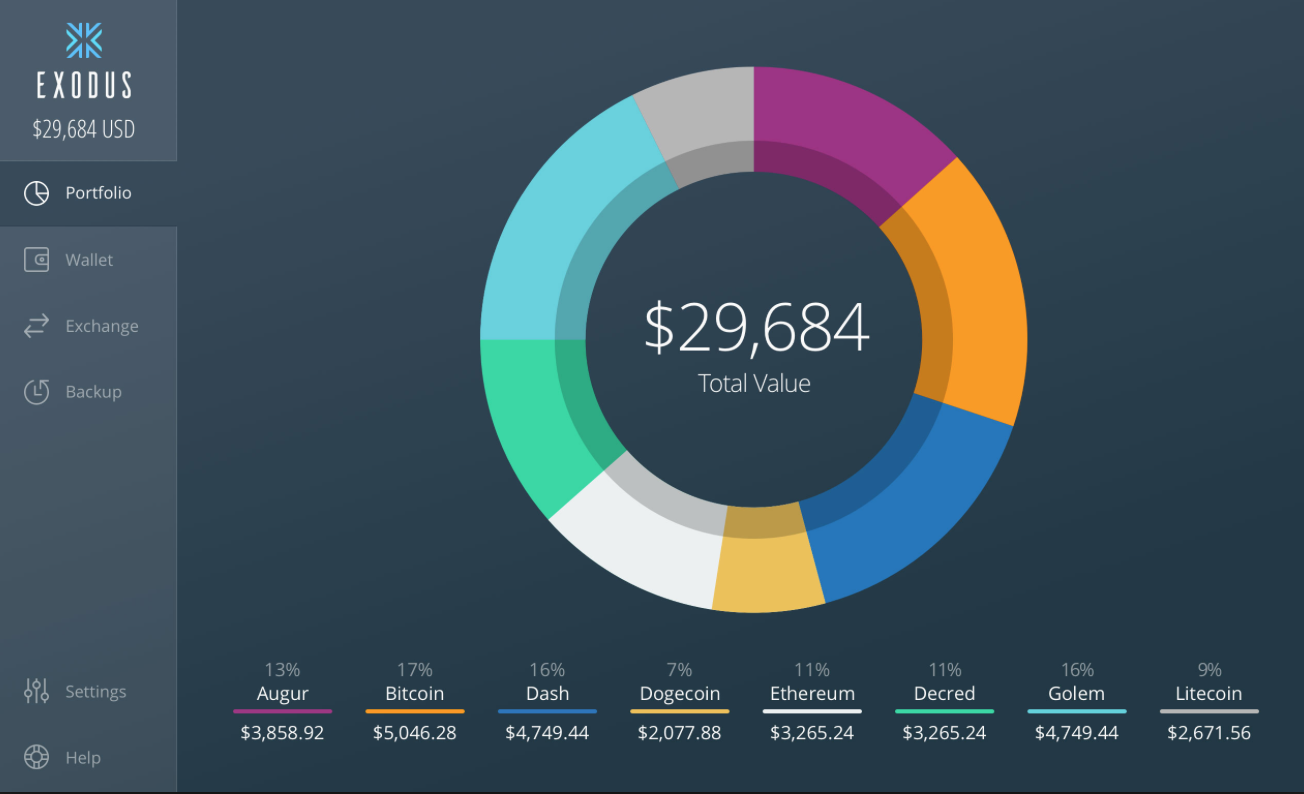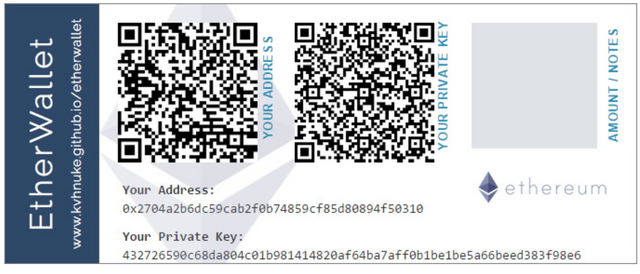Cryptocurrency Wallets
Your choice of wallet depends on the type of cryptocurrency you’re planning to stow away. You can use My Ether Wallet to store Ethereum and create custom smart contracts (ERC 20 tokens). There are four different kinds of wallets to store virtual currencies in general:
(1) Exchange Wallet: A wallet that’s part of an exchange where you can buy cryptocurrency from. Usually the wallet linked to a bank account is used to transfer fiat to-and-from the wallet. You can buy, sell and store virtual currency on exchanges like Coinbase/GDAX, Bittrex, Bitfinex, Poloniex, Bitstamp and so on. Exchange wallets are not considered safe for long term use since they can be prone to hacks and brute force attacks. Each year, 15% of circulating Bitcoin and Ethereum is stolen from exchanges and wallets leading to millions of dollars in losses. One can store cryptocurrency in the form of USD, Ethereum, Bitcoin and Litecoin on Coinbase. There are other altcoin exchanges which can be used to buy cryptocurrencies using bitcoin as a form of interconvertible fiat, such as Binance and HitBTC. Each of these currencies can be backed up to a storage vault (such as that on Coinbase) with extra security measures such as email/SMS confirmation or 2FA (two factor authentication) using a google Authy app.
(2) Hardware Wallet: There are many types of hardware devices (that resemble a USB drive with a display or touchscreen component and a small keypad) that serves as a vault for your digital asset. Two of the most popular wallets are the Ledger Nano S and the Trezor. There are other companies that sell hardware wallets but the aforementioned ones are the most affordable ones. Always have a backup of keys (or seeds, or word phrases) to restore your wallet in case of emergency or loss of the device. Store the keys in a safe place. Always buy your wallet from a trusted source, such as the official Ledger website. Never buy a used or tampered wallet from Amazon or EBay. Sometimes, these redistributed wallets can be broken into easily, always make sure you reset the device. Some of these are sold with altered chips, hence always make sure you buy from a trusted source in order to avoid loss of funds. Hardware wallets have an added layer of security to them, i.e. they can be configured with a PIN code and passphrase. Three failed attempts at entering the PIN and the contents of the wallet are wiped clean. Usually many different types of currencies can be backed up on a given hardware wallet. Hardware wallets are considered the safest of the lot, since they can’t be broken into easily.

A Nano S Ledger (hardware wallet) can be brought from https://www.ledgerwallet.com for a price for about 79 Euros. These wallets will be directly shipped from France and the closest available shipping date is 26th March. They are currently out-of-stock and are available for preorder only.

(3) Software Wallet: Each cryptocurrency has its own version of a web or desktop wallet which can be used to store currency. Staking is sometimes offered which means, you get a % return on investment in return for storing your funds on a desktop wallet over a given period of time. This service is being offered by many new and existing currencies, particularly ICO’s (initial coin offerings) in an effort to encourage long term holding of currency. You can use an Electrum wallet to store bitcoin. Software wallets can also be installed on phones, iPhone or Android. They are not very secure and have shown to be prone to hacks but they can be used easily especially if you’re used to storing and sending your funds from your phone. You can also use Metamask which is a plug-in or extension that can be installed on Google Chrome. Metamask is encrypted and is shown to be relatively safer than other types of software wallets that have been hacked in the past.

(4) Paper Wallets: There are many paper wallet generator websites that provide a public and private key for a specific type of cryptocurrency. These keys are usually a random assortment of letters and numbers in the form of a string. The public key serves as the wallet address. The private key is linked to the public address and should never be revealed unless you’re trying to withdraw funds from the wallet. The paper wallet should be stored in a safe place, away from prying eyes and multiple copies should be made in case of loss, or circumstances such as a fire or flood. If the keys are lost, the funds are also lost forever. One such website to generate an Ethereum-based paper wallet (which supports ERC 20 and ERC 23 tokens and smart contracts) is MyEtherWallet.com. The paper wallet can be stored as a JSON file or a PDF containing unencrypted public and private keys. A paper wallet is the cheapest form of securely storing cryptocurrency.

I recommend using a combination of two types of wallets to store your digital assets. Your safest bet is a hardware wallet in addition to a paper wallet(s) which can contain a paper backup of keys and necessary pass phrases.
Hello @magicismight, upv0t3
This is a free service for new steemit users, to support them and motivate them to continue generating valuable content for the community.
<3 This is a heart, or an ice cream, you choose.
:)
R4ND0M:
2583 7326 1088 4304
1991 3082 7370 2758
3987 4747 3576 3598
4783 2062 4634 6039
Congratulations @magicismight! You received a personal award!
Click here to view your Board
Do not miss the last post from @steemitboard:
Congratulations @magicismight! You received a personal award!
You can view your badges on your Steem Board and compare to others on the Steem Ranking
Vote for @Steemitboard as a witness to get one more award and increased upvotes!